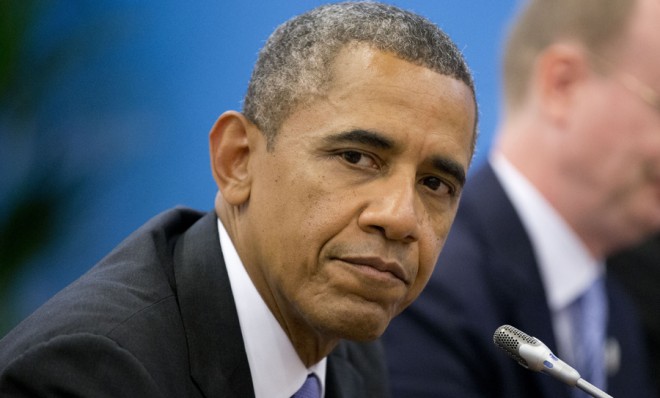Will the G-20 summit leave Obama isolated on Syria?
It will if Vladimir Putin gets his way


A free daily email with the biggest news stories of the day – and the best features from TheWeek.com
You are now subscribed
Your newsletter sign-up was successful
President Obama heads into this week's G-20 summit in Russia hoping to rally support for a military strike to punish Syria for allegedly attacking its own people with chemical weapons.
The meeting's host, Russian President Vladimir Putin, has other plans. Putin is hoping to use the summit to make Obama look like he has gone rogue by pushing an intervention for which there is lackluster international support. He got started by calling U.S. Secretary of State John Kerry a liar for downplaying al Qaeda's role among Syrian rebels, and even symbolically isolated Obama by moving him down the table on the seating chart.
The showdown — further evidence of the collapse of Obama's one-time goal of resetting relations with Russia — could make the G-20 "one of the most awkward and uncomfortable international summits in recent memory," in the words of Britain's Independent. The agenda is focused on trade and other economic issues, but the debate on the sidelines could determine whether Obama heads into a Monday Senate vote on Syria bolstered by the support of a broader international alliance, or increasingly isolated.
The Week
Escape your echo chamber. Get the facts behind the news, plus analysis from multiple perspectives.

Sign up for The Week's Free Newsletters
From our morning news briefing to a weekly Good News Newsletter, get the best of The Week delivered directly to your inbox.
From our morning news briefing to a weekly Good News Newsletter, get the best of The Week delivered directly to your inbox.
Both sides have allies going in. China has joined Russia in opposing an attack on Syrian President Bashar al-Assad's forces. France says Assad must be punished, and is gung-ho about using force.
How many other countries will back Obama? That is very much an open question. Bridget Kendall at BBC News notes that the other allies at the table in St. Petersburg include Canada, Australia, South Korea, Japan, and Germany, as well as European Union leaders. How they "line up will be illuminating," she says, "and could have some bearing on how this crisis will play out."
Since the summit is about economics, there won't be any official declaration on Syria. That limits the impact Putin can hope to gain from the summit, even if he is able to stir up greater opposition to Obama's plans in private discussions expected to involve representatives of key nations. "Putin would like to see a consensus to avert military action in what would be a significant — but unlikely — personal triumph," says Timothy Heritage at Reuters.
But being host of the summit might also limit Putin's options. The Russian leader is in charge of the event, says Josh Gerstein at Politico, and that gives him control he can use to "take some shots at Obama over Syria without the U.S. president necessarily having an immediate chance to respond." It also means, however, that his international credibility is on the line, Gerstein says. In other words, Putin can't afford to look foolish by letting the summit degenerate into a fight over Syria, especially since Obama will have more friends at the table than he has.
A free daily email with the biggest news stories of the day – and the best features from TheWeek.com
Obama's supporters still see the summit as a chance for him to bolster his case for hitting Syria hard. If he hadn't surprised everyone by asking Congress to authorize the attack, an airstrike might have been underway when the summit began. Optimists, notes Ian Traynor at Britain's Guardian, say that now the summit will provide one last golden opportunity to get the U.S. and Russia to work together on ending the fighting in Syria. "But no one is holding their breath."
Harold Maass is a contributing editor at The Week. He has been writing for The Week since the 2001 debut of the U.S. print edition and served as editor of TheWeek.com when it launched in 2008. Harold started his career as a newspaper reporter in South Florida and Haiti. He has previously worked for a variety of news outlets, including The Miami Herald, ABC News and Fox News, and for several years wrote a daily roundup of financial news for The Week and Yahoo Finance.
